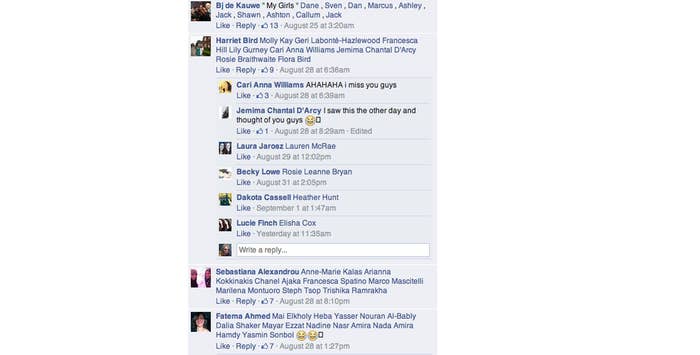On Friday, after returning from a social media-free vacation, YouTube's most popular star announced a change: He was turning off comments. In an unusually earnest video, PewDiePie, the Swedish 24-year-old who's known for streaming himself playing video games while shouting profanities for his record-breaking 30 million subscribers, said the comments on his videos had become too full of spam, self-promotion, and, as he put it, "people trying to provoke" — what you might more colloquially call trolling.
"I'm sick of it," he says in the video. "I'm going to turn off the comments forever."
This was in stark contrast to an interview I'd done the week before, with another virally popular social media star in his early twenties, who said, "It's all about the comments." The difference? The platform.
Elliot Tebele, who runs a popular Instagram called @FuckJerry, which posts memes and funny pictures, said that while likes were well and good, comments are a far more important metric in thinking about how a piece of content spreads on Instagram. His followers share photos they like by tagging friends in comments, who may go on to post more comments, tagging other friends. This leads to thousands of comments, and serves as the feed's main, albeit hands-off, distribution method.
A similar effect occurs with popular Facebook content. Take this original video made recently by BuzzFeed and posted to Facebook. Scroll through the more than 73,000 comments, and you'll find an overwhelming majority are users tagging friends with whom they want to share the video. When you think about sharing content on Facebook, you might imagine users tapping away at the share button and reposting the link or photo or video on their own pages, but user behavior suggests it's more nuanced. This kind of under-the-hood method of sharing may be less obvious, but it's equally, if not more, important.

Internet comments (rightfully!) get a bad rap, especially on YouTube, where comments are often hateful, ignorant, or, at best, truly inane (see John Oliver's recent exploration of the topic on Last Week Tonight as evidence). And, of course, that extends beyond YouTube. Jezebel, for example, was recently inundated in its comments sections by GIFs depicting graphic sexual violence. And The Verge recently implemented a new comment moderation policy after a female staffer endured personal attacks on an article about a persecuted female gamer. The comments sections of blogs and websites are notorious for quickly devolving from civilized discussion into a cesspool for hate and stupidity.
On YouTube, and many websites, comments also have questionable tangible value to creators and publishers. While they give readers a voice and help generate the coveted idea of community, conversations often turn sour. There are numerous notable exceptions — The Hairpin and The Toast, in particular, have communities of regular commenters who are very smart and kind to one another. And Gawker's Kinja system, moderation issues aside, has looked to and frequently succeeded in pushing the boundaries of engaging web commentary.
But a lot of these same conversations are also happening off-site, on Twitter or even on Reddit. That's what PewDiePie thinks, at least — without comments on his YouTube videos, he now plans to engage with his fans through Twitter hashtags and a Reddit forum.
But that new breed of comment — the "tag your friend comment" — is a funny thing. If you measure value, as many creators and publishers now do, in terms of distribution potential, it's become the most important kind of comment. But it's also turned those comments sections into something that aren't really comments sections at all. They're more of a network map of the way something is spreading.
So what should we do about comments? Banning them is counterproductive. Maybe rename them, then? If you have a suggestion, do share it. In the comments, I guess.

